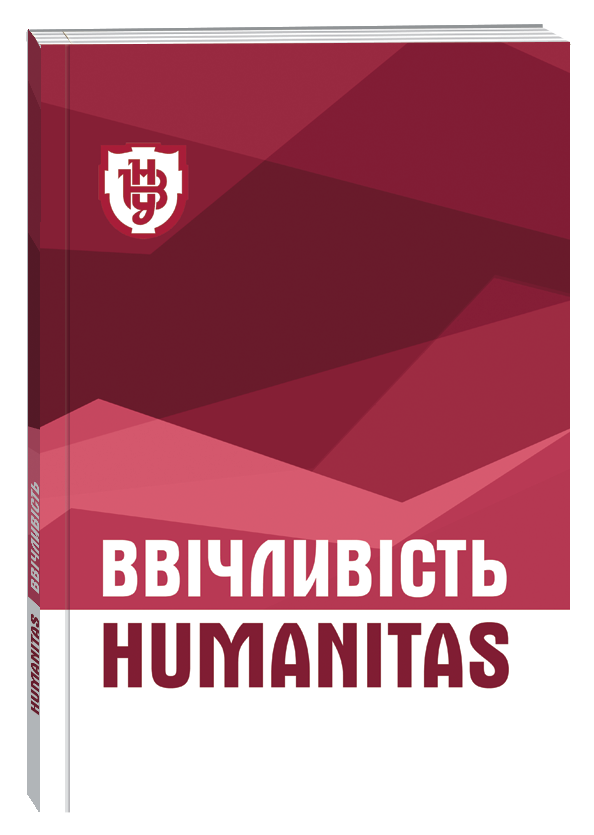FACILITATION TECHNOLOGIES IN SOCIAL WORK WITH PARENTS RAISING CHILDREN WITH DISABILITIES
DOI:
https://doi.org/10.32782/humanitas/2025.4.4Keywords:
parents of children with disabilities, social work, social work technologies, facilitation technologies, facilitation, facilitatorAbstract
This paper presents an analysis of the issue of social support for parents of children with disabilities as an important part of modern social work. The aim of this study is to identify the specific features of using facilitation technologies in working with parents of children with disabilities. To achieve this goal, a theoretical analysis of academic sources in the fields of social work, psychology, and pedagogy was conducted, alongside practical experience in applying facilitation technologies. It has been established that the implementation of facilitation technologies for parents of children with disabilities is preceded by a diagnosis of their needs, difficulties, problems, and psycho-emotional states. Various types of parental support were identified and analyzed, including social, socio-pedagogical, and psychological support. The methods, forms, and technologies of social work with this category of parents were examined. Classification criteria for social work technologies with parents were outlined, such as the main goal of the technology, the number of participants, and the nature of their interaction. Two main groups of technologies in social work with parents raising children with disabilities were characterized: training and psycho-pedagogical education, and facilitation and emotional support for parents. It was found that the goal of the first group is to increase parental competence and involvement in child-rearing, while the second group aims to harmonize parents’ psycho-emotional states and to unlock their personal potential. Facilitation technologies are aimed at supporting individuals, groups, families, or communities by creating conditions for the activation of inner resources, development, self-realization, effective interaction, and positive motivation for action. The main tasks of facilitation technologies for parents of children with disabilities were identified. The effectiveness of using facilitation as a supportive technology in both individual and group forms of work with parents was substantiated.
References
Брикова О. С., Бугера Ю. Ю. Застосування арттерапевтичних технік в роботі з батьками дітей з особливими освітніми потребами. Актуальні питання корекційної освіти. 2021. Вип.17. С. 14–24. URL: https://aqce.com.ua/vipusk-n17-2021/brikova-os-bugera-ju-ju-zastosuvannja-artterapevtichnih-tehnik-v-roboti-z-batkami-ditej.html
Бугера Ю. Ю., Гевчук Н. С., Дідик Н. М. Методи і форми соціально-реабілітаційної роботи з батьками, які виховують дитину з особливими освітніми потребами. Актуальні питання корекційної освіти. Педагогічні науки. 2021. Вип. 17. С. 25–35. URL: http://nbuv.gov.ua/UJRN/apko_2021_17_5
Енциклопедія для фахівців соціальної сфери / за заг. ред. І. Д. Звєрєвої. Київ, Сімферополь : Універсум, 2012. 536 с.
Залуцький І. І., Денисюк О. М., Чечко Т. М. Використання засобів інформаційно-комунікаційних технологій (ІКТ) у роботі з батьками, які виховують дитину з інвалідністю. Педагогічні науки: реалії та перспективи. 2020. Вип. 75. Серія 5. С. 85–90.
Кабельнікова Н. В. Застосування технології фасилітації у роботі з батьками учнів класів з інклюзивною формою навчання. Вісник науково-дослідної лабораторії інклюзивної освіти / заг. ред. І. І. Демченко. Умань : ВПЦ «Візаві», 2019. Вип. 5. С. 134–138.
Котлова Л. О. Сімейні труднощі на різних етапах життєвого циклу сім’ї. Publishing Center of the European Association of pedagogues and psychologists «Science». Prague, 2014. Vol. 2. P. 176–182.
Полєхіна В. Соціальний гувернер як фасилітатор у підтримці сім’ї дитини з особливими освітніми потребами. Соціальна робота та соціальна освіта. 2025. № 1 (14). С. 59–66. DOI: https://doi.org/10.31499/2618-0715.1(14).2025.330987
Посібник для фасилітаторів громад мережі організацій Карітас. Практики, методи, інструменти. Київ, 2024. 164 с. URL: https://caritas.ua/wp-content/uploads/guide%20for%20facilitators.pdf
Методичні рекомендації «Психологічний супровід дітей з особливими освітніми потребами в умовах закладу освіти». URL: https://kipt.sumdu.edu.ua/uk/studentam/sotsialno-psykholohichna-sluzhba/item/2496-metodychnirekomendatsii-psykholohichnyisuprovid-ditei-z-osoblyvymyosvitnimy-potrebamyv-umovakh-zakladu-osvity (дата звернення: 21.07.2025).
Столярик О., Семигіна Т. Соціальна робота із сім’ями, які виховують дітей з аутизмом: інтервенція з розвитку сильних сторін : монограф. Таллінн : Teadmus, 2022. 188 с.
Трубавіна І. М., Нагачевська З. І., Мартинюк А. Ю. Методика організації роботи груп підтримки осіб, які перебувають у складних життєвих обставинах. Вісник ЛНУ імені Тараса Шевченка. 2020. № 2 (333), ч. ІІ. С. 282 – 293. DOI: 10.12958/2227-2844-2020-2(333)-2-282-293
Фісун О. В. Формування фасилітуючої позиції вчителя в системі науково-методичної роботи загальноосвітнього навчального закладу: автореф. дис. ... канд. пед. наук: 13.00.04. Харків, 2011. 22 с.
Фокша О. М. Педагогічні умови формування фасилітаційної компетентності майбутніх учителів гуманітарних спеціальностей у професійній підготовці: автореф. дис. ... канд. пед. наук: 13.00.04. Одеса, 2019. 24 с.
Чечко Т. М. Соціально-педагогічна підтримка батьків дітей з особливостями психофізичного розвитку в дошкільних навчальних закладах: Вісник ЛНУ ім. Т. Шевченка. 2018. №6 (320). С. 296–307.
Magidigidi‑Mathiso L., Filies G. C., Frantz J. Strengthening Parental Capabilities: Examining the Role of Interdisciplinary Support in Enhancing Parental Well‑Being and Capabilities in Developmental Disability Care. Social Sciences. 2025. 14(6). Р. 321. DOI: 10.3390/socsci14060321








